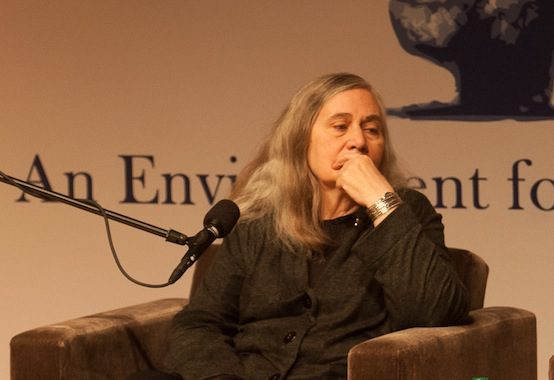Marilynne Robinson’s Jack

Marilynne Robinson once said that she would not write a novel on the character Jack from her Gilead series. She did anyway, and maybe she shouldn’t have. Jordan Kisner reviews:
Jack, the fourth and newest novel in the series, invokes characters who will be familiar to readers of Gilead (2004), Home (2008), and Lila (2014). The Reverends Robert Boughton and John Ames, boyhood best friends who grew up in Gilead in the early 20th century and became preachers together, are now old men near death; the father and godfather, respectively, of Jack, they await his return home before it’s too late. Glory, the youngest Boughton daughter and the presiding perspective in Home, as well as Teddy, one of Glory and Jack’s three brothers, hover on the periphery. But Jack focuses on, as its title would suggest, the character who has eluded, bedeviled, and grieved all the people who have ever loved him: the prodigal son.
In the previous books, Robinson offered Jack to readers through the eyes of others. A strange and destructive child, he didn’t just vanish at inconvenient moments; he blew up mailboxes, stole things for the sake of stealing them, drank, skipped church, and was generally unbiddable. ‘There was an aloofness about him,’ Glory recalls. ‘More thoroughgoing than modesty or reticence. It was feral, and fragile.’ He is also, as a child and then as a man, intensely thoughtful, a voracious reader, gentle in his manner, oddly bewitching. He has been plagued from a very young age by a deep feeling of estrangement. For some reason no one can quite understand or articulate—himself least of all—he is set apart, unlike his family or neighbors.
Robinson has said, over the years, that she keeps returning to Gilead because she misses the characters, or wants to give some previously secondary figure the depth and attention afforded a protagonist. But in an interview with The Paris Review in 2008, after publishing Home, she rejected the idea that Jack would be a candidate for further excavation. ‘I would lose Jack if I tried to get too close to him as a narrator,’ she said. ‘He’s alienated in a complicated way. Other people don’t find him comprehensible and he doesn’t find them comprehensible.’
Robinson was prescient to predict that enlisting Jack as a primary protagonist would pose problems, and it is telling that she found him irresistible anyway.
In other news: The Vikings likely arrived in America around the year 1,000. It “marked a turning point in world history,” Valerie Hansen argues in Aeon: “it is the earliest documented encounter between the peoples living on opposite sides of the Atlantic.”
Thomas Meaney reviews Robert Gerwarth’s November 1918: “The German Revolution of 1918 has long been overshadowed by its more thunderous elder sibling, the Bolshevik Revolution of 1917. This is a pity, as Robert Gerwarth contends in his new history, November 1918. The German Revolution may lend more perspective to our own period of crisis, or at least to our failure to think soberly about it, than many other analogs on offer.”
The power of reading out loud: “Today, silent reading is the norm. The majority of us bottle the words in our heads as if sitting in the hushed confines of a library. Reading out loud is largely reserved for bedtime stories and performances. But a growing body of research suggests that we may be missing out by reading only with the voices inside our minds.”
Milan Kundera has won the Franz Kafka Prize: “Milan Kundera, whose Czech citizenship was restored last year after he had spent more than 40 years in exile, has won one of the Czech Republic’s most prestigious literary awards, the Franz Kafka prize. The $10,000 (£7,800) award, organised by the Franz Kafka Society and the city of Prague, is chosen by an international jury. Franz Kafka Society chairman Vladimír Železný said Kundera won for his ‘extraordinary contribution to Czech culture’, and for an ‘unmissable response’ in European and world culture.”
A. E. Stallings reviews Ernest Hilbert’s Last One Out: “Ernest Hilbert is not an optimist. In his latest collection, Last One Out, the title poem addresses not only our individual mortality, but a kind of ‘last call,’ a ‘hurry up please it’s time’ for the world as we know it.”
Deborah Dietsch, longtime editor of Architecture Magazine, has died. She was 68: “Deborah Dietsch, a pioneering architecture writer and critic who served as editor-in-chief of Architecture Magazine in the 1990s, passed away September 10 at George Washington University Hospital in the District of Columbia from complications following an operation. She was 68. According to a friend, John Walker, Dietsch suffered a back injury and required spinal surgery. ‘The surgery went well, but she suffered medical complications that she could not overcome,’ Walker said an email message shared with her friends.”
Eric Gibson reviews the selected essays of Leo Steinberg: “Art historians do not generally become household names, as Kenneth Clark did later in life after embracing television, most famously with Civilisation (1969). They can, however, acquire legendary or semilegendary status within the profession and among amateurs. One such was Leo Steinberg (1920-2011), who taught for many years at the City University of New York and the University of Pennsylvania.”
Photo: St-Saphorin
Get Prufrock in your inbox every weekday morning. Subscribe here.
Comments